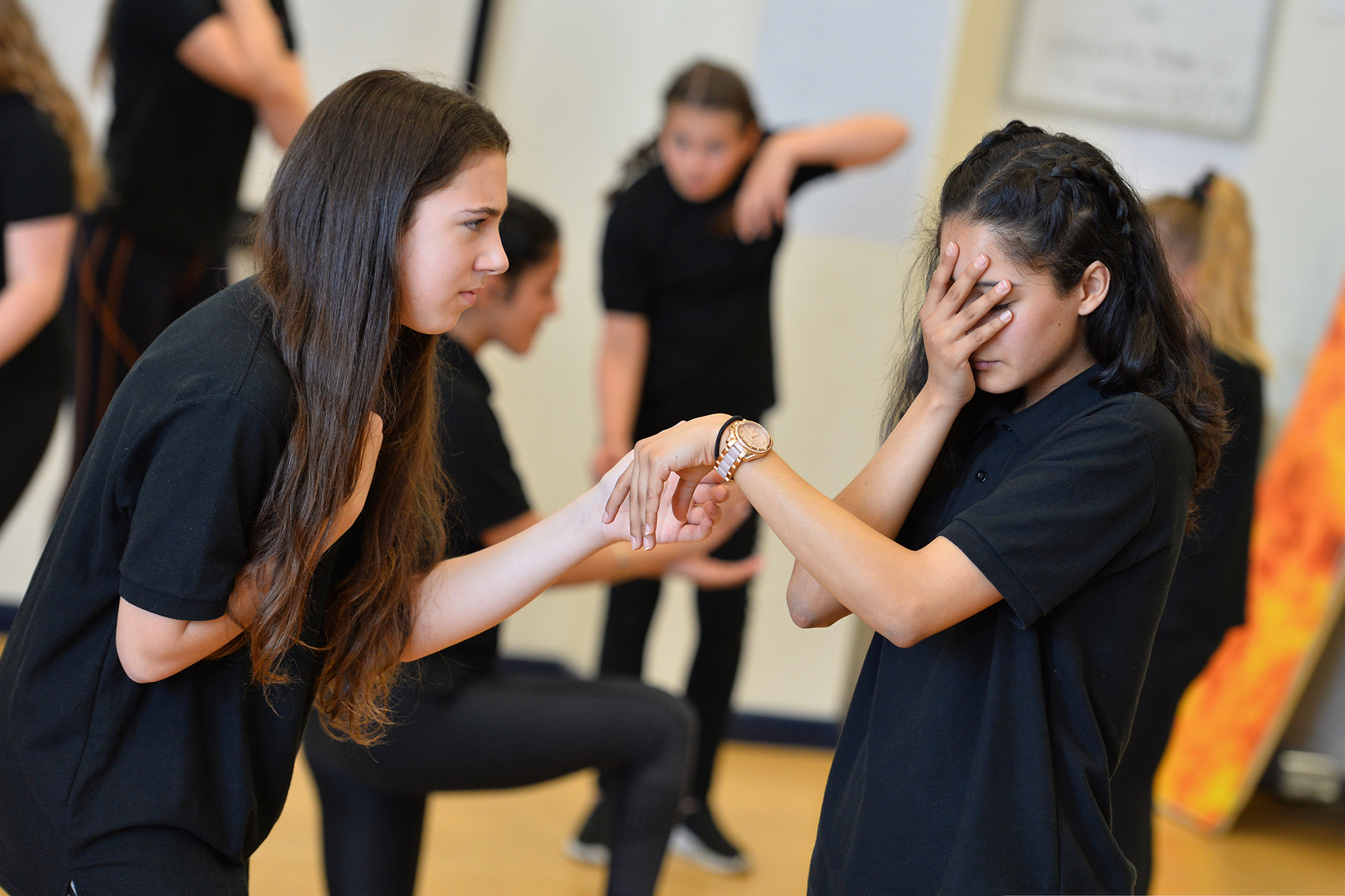
Getting performance ready for exam day
BY: Guest Writer
02 July 2025
In this blog we hear from Nicola Holbrough, Trinity Acting teacher at Pocklington School, about how they ensure all of their candidates are fully prepared and confident for their exam day.
We began delivering Trinity Acting exams because we wanted a syllabus that is creative, imaginative and exciting for all ages and we wanted an awarding body that understands relevant actor training. Our head teacher’s daughter studied Trinity grades and absolutely loved it; they really showcased her skills. The drama department looked into the syllabus and loved it!
We have only advertised the courses once and we have still managed to grow the numbers simply through word of mouth. Our students are very positive and proactive about their studies and love to share what they do with friends. We really home in on the transferable skills that Trinity exams can develop - this is a great selling point!
Our students have a weekly half hour lesson where they work on their exam pieces and explore different acting and devising techniques. We rotate lesson throughout the school day, so students don't miss the same lesson twice. Then at the end of the academic year (May to June) our students take their exams.
When they come to select pieces for their exams, I offer them guidance, but the choice is up to them. The younger students bring in books or plays they like, and the older students try to stretch and challenge their skills by choosing a character that is different to the one they played in the grade before. We always get up on our feet to try the character out to see if it feels right in our bodies and vocally before choosing.
 For Task 2 Character Development students need to devise an original scene using a character from their performance piece. For this process we discuss the character and the world they are in (emotionally, socially, physically) and then we decide a beginning middle and an end to the piece. We improvise the piece and write down the ideas that worked well, and students then develop these ideas and create more text, based around the improvisation.
For Task 2 Character Development students need to devise an original scene using a character from their performance piece. For this process we discuss the character and the world they are in (emotionally, socially, physically) and then we decide a beginning middle and an end to the piece. We improvise the piece and write down the ideas that worked well, and students then develop these ideas and create more text, based around the improvisation.
To help prepare for our students for their exam day we do a complete mock exam with feedback. They run through the whole exam, going from piece to piece exactly as they would do in the real thing. I write down feedback for the students on a feedback form, and then we will discuss ways to improve their performance.
We also organise a showcase a few weeks before the exam day is due to take place, where parents are invited to watch and give feedback. Our senior school students assist with the prep school students. They are wonderful at helping backstage with hair, make up and costume along with helping younger students know when to go on stage. This process helps the Trinity students to feel like a team, even though they are taking part in solo exams.
Students select which of the pieces they have been preparing for their exam they would like to perform, and they love this opportunity to show off their pieces. Our students get really excited about the showcase; in fact, it's one of the first things they ask about when they sign up to do Trinity exams.
We arrange the showcase before the exam as this ensures that lines are secure, and it really does boost confidence. It also helps actors with their character movement as they are dressed in the appropriate costume for the time period. The showcase generates excitement for the exam because the students now know they can do it and all they need to do is show the examiner how brilliant they are!
 There are other benefits to the showcase; it enables students to show parents and friends what they can achieve but it also allows the students to play a role they have chosen for themselves. In school plays or professional theatre this very rarely happens so it's a brilliant opportunity! I often feel the excitement after a showcase is at a high as students receive feedback from their peers and audience members. We try our best to hold on to the feeling of performing to an audience and use that to develop the pieces, we also encourage them try and remember it when they are in the exam itself.
There are other benefits to the showcase; it enables students to show parents and friends what they can achieve but it also allows the students to play a role they have chosen for themselves. In school plays or professional theatre this very rarely happens so it's a brilliant opportunity! I often feel the excitement after a showcase is at a high as students receive feedback from their peers and audience members. We try our best to hold on to the feeling of performing to an audience and use that to develop the pieces, we also encourage them try and remember it when they are in the exam itself.
Students have also performed their Trinity exam pieces in prize giving assemblies and award ceremonies to showcase their achievements.
All of this experience means that students already have detailed monologues that they can perform brilliantly in professional auditions, which has really helped our older students who are applying for drama school or to agents.
We have even more students signed up for our Trinity programme in September, and already looking forward to our next showcase event!
Related posts
BY: Natalie Christopher




Comments & Replies